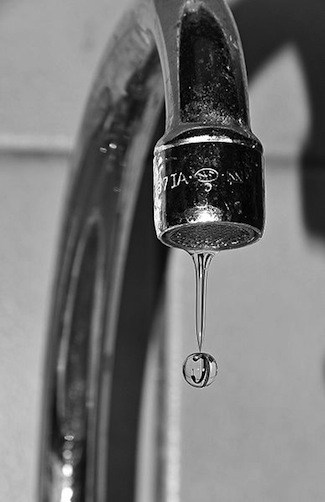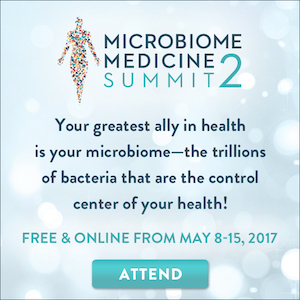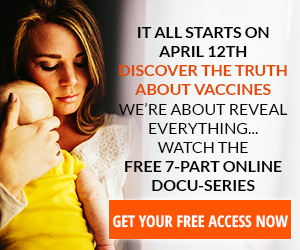Tap water is chlorinated with a chemical called dicholorophenol. This chemical is also in pesticides used on fruits and vegetables.
A study published in the journal, Annals of Allergy, Asthma and Immunology in 2012, found an association between dicholorophenol in the urine of individuals and a greater sensitization to food.
High levels of Dichlorophenols Equal Greater Chance of Allergies
Researchers found that people with the highest levels of metabolites of dichlorophenols in their urine also had greater chances of having a food allergy. Dichlorophenols are a kind of chlorine in certain pesticides that are used to kill bacteria. While they may kill the pathogenic bacteria, they may also kill the beneficial bacteria — which can lead to causing food allergies.
The researchers based their findings on the U.S. National Health and Nutrition Examination Survey, of 10,348 people between 2005 and 2006. From this group, 2,548 people had detectable levels of dichlorophenols in their urine and were used for the study.
Of the 2211 people actually used for the study, 411 had food allergies and 1016 had environmental allergies.
According to allergist Elina Jerschow, M.D., M.Sc., ACAAI fellow and lead study author,
When researchers have compared bacteria from the bowel in healthy kids versus bacteria in the bowel for kids that have lot of allergies, they’ve noticed a big difference.
Our research shows that high levels of dichlorophenol-containing pesticides can possibly weaken food tolerance in some people, causing food allergy… this chemical is commonly found in pesticides used by farmers and consumer insect and weed control products, as well as tap water.
Food Allergies On the Rise
According to the Centers for Disease Control and Prevention, the number of children and teens with food or digestive allergies in the United States has increased 18 percent between 1997 and 2007. That translates to about 3 million people under 18 years old.
The most common food allergens are milk, eggs, peanuts, wheat, tree nuts, soy, fish, and shellfish.
According to Dr. Jerschow,
Previous studies have shown that both food allergies and environmental pollution are increasing in the United States…the results of our study suggest these two trends might be linked, and that increased use of pesticides and other chemicals is associated with a higher prevalence of food allergies.
According to Dr. Jerschow, water may not be the main source of dichlorophenol.
Other dichlorophenol sources, such as pesticide-treated fruits and vegetables, may play a greater role in causing food allergy.
I always avoided pesticides because of the cancer risk. I never thought of pesticides as a mechanism for developing food allergies. Did you?
IgE Food Allergies are the Only Allergies Studied
This study and most studies like it, measure IgE allergies. These are the only allergies recognized by conventional allergists and their organizations such as the American College of Allergy, Asthma, and Immunology.
Conventional skin prick allergy testing is ONLY testing for IgE allergies. If you do not have a positive reaction to those tests, you are told you do not have allergies.
Other Food Allergies are Not Counted
There are other measurable immunological reactions to food (called delayed food allergies or delayed hypersensitivites) that are recognized by alternative health practitioners. These involve IgG, IgA and IgM reactions and may be measured with alternative laboratory testing.
Sadly, this type of testing is not standardized, which is one of the reasons it is not recognized by conventional medical organizations. However, it is used by many health practitioners and found to be effective in many cases.
These delayed food allergies do not cause immediate symptoms and so can be very difficult to identify. The alternative lab testing is a good place to start, but a cheaper and possibly more accurate way to figure it out is to use an elimination diet. Just eliminate the entire food group for 5 to 7 days and then introduce a significant portion of the food. During the next 24 – 48 hours you will have some symptoms if you are allergic to the food.
Two Other Sources of Anti-Microbials
We know that antibiotics are a very powerful source of anti-microbials that can wreak havoc on the digestive tract. We have also known that pesticides are very toxic chemicals implicated in cancers.
We now know that pesticides may also set the stage for food allergies — possibly by killing off the beneficial bacteria along with the pathogens on our food and in our water.
Hygiene Hypothesis
The Hygiene Hypothesis proposes that our immune system evolved in circumstances that allowed it to be exposed to many different microorganisms, some benign, some not. These constant and continuous exposures challenged the immune system to evolve and develop properly. With the relatively sudden drop in these exposures, the immune system cannot develop properly and autoimmunity and inflammation are the consequences.
In a study published in the Lancet in 2001, it was reported that children in large families and especially those that grew up on farms were less likely to develop hayfever. It was postulated that early exposure/infection with the multitude of microorganisms one would find on a farm, and also from other siblings, would diminish the incidence of hayfever.
In 2002, a study published in the New England Journal of Medicine found that children exposed to endotoxin (microbial components) develop a tolerance to external allergens — that is, they were protected against allergies and asthma.
Clearly, exposure to bacteria and other micro-organisms is critical to proper immune system development and function.
Which Comes First the Chicken or the Egg?
The development of food and environmental allergies may depend on many factors. However, there seems to be one common denominator — damage to the immune system and damage to the gut lining, i.e. leaky gut.
The friendly bacteria and other microbes that make up the majority of cells in our bodies protect the intestinal lining and the immune system (which primarily resides in the gut). With repeated exposures to pesticides and other anti-microbials, for instance in tap water, we have increased the risk for developing allergies and other related conditions.
Buy Organic When Possible
Clearly, avoiding foods laden with pesticides are a priority. Fruits and vegetables, as well as grains if you are eating them, should all be organic if possible. Each year the Environmental Working Group publishes the list of the dirty dozen and the clean fifteen. Here is last year’s list.
Animal products should be organic as well because the pesticides and GM foods conventional animals are feed will also be in their meat, milk and eggs. Pasture raised animals are best.
Clean Water
Investigate water filters and find one that is suitable for your needs — there are several kinds available. Most of them filter out the chlorine as well as other undesirable elements such as pesticides, heavy metals and fluoride.
If You Have Allergies
Rather than live with allergies by managing them through medications and/or numerous supplements, I encourage people to try to seal and heal a leaky gut with healing diets such as SCD, GAPS and Paleo.
While these diets are restrictive and may be difficult — if you are motivated and informed I know you can accomplish a lot. Many people have found that their allergies improve and/or disappear after going through a healing protocol.
Tap Water Can Be Dangerous
I never thought that tap water could be contributing to the rapidly rising food allergy problem — did you? Leave a comment and let me know!
This post is shared at: Thank Your Body Thursday, Creative Juice Thursday, Simple Lives Thursday, Tasty Traditions, Fresh Bites Friday, Fight Back Friday, Small Footprint Friday, Mommy Club, Allergy Free Wednesday, Real Food Wednesday, Seasonal Celebration, Party Wave Wednesday, Healthy 2Day












